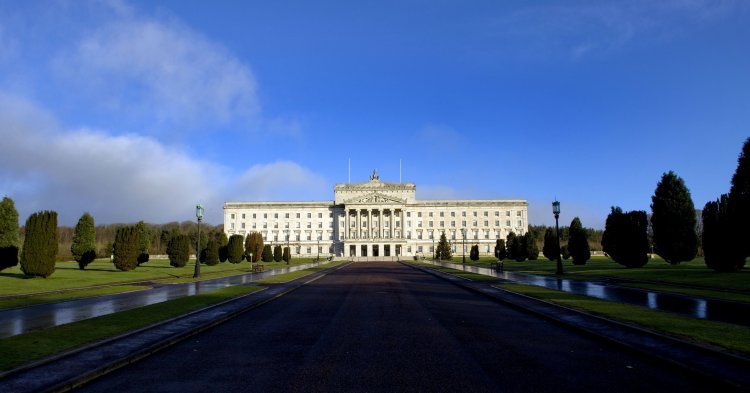Northern Ireland’s silent Assembly
The Northern Ireland Executive, which has been discussed at great length, serves as a reminder of the political crisis that swallowed Northern Irish Parliament.
Since January 2017, the country has been without a government and all current affairs are being dealt with by the UK Parliament until a new government can be elected. This is the main idea behind the devolution of power. The main problem is that in order to form a government, the main parties need to come to an understanding. However, the radically differing views of the Democratic Unionist Party (DUP) who support and maintain the position of Northern Ireland in the UK, and nationalist party Sinn Féin who advocate the reunification with the Republic of Ireland, have made this agreement impossible.
The UK parliament passed the Northern Ireland Executive Formation etc Act which was approved by the Queen last July. According to this law, the UK parliament gave Northern Ireland until 21st October 2019 to form a government. More importantly, in the case that no government was formed in Belfast, it required the UK government to change Northern Irish legislation on abortion which up until now has been illegal according to the 1861 Offences Against the Person Act.
With the exception of Northern Ireland, since the 1967 Abortion Act, abortion is legal in the UK if the mother’s life would otherwise be at risk. According to the 1945 Northern Ireland Criminal Justice Act, abortion is only authorised if the child is incapable of being born alive or if abortion would be the best option to save the woman’s life. These very strict criteria explain why between 2017 and 2018, there were only 44 cases of abortion despite a population of 2 million in Northern Ireland. In the same year, 250,000 abortions were carried out in England and Wales which together have a population of 59 million.
On 8th October, the High Court in Northern Ireland had already made a step forward on the grounds that local legislation goes against Article 8 of the European Convention on Human Rights which protects rights to privacy. Be that as it may, the adoption of the law constitutes an almost complete change of approach to abortion in the country.
What does the law say?
The 2019 Northern Ireland Executive Formation Act is not supposed to replace the Northern Irish legislator. It can only be applied until 31st March 2020 when Stormont parliament is set to take back control. There is a public consultation on the subject open starting from 22nd October.
In the meantime, there is much disruption in Northern Ireland’s legislative landscape. The new law requires the UK government to act on recommendations from the UN Committee relating to the Committee on the Elimination of Discrimination Against Women (CEDAW) published in 2018. The most visible change is the decriminalisation of abortion through the abolition of the Offences Against the Person Act 1865.
Women awaiting trial have had all charges against them dropped as of 22nd October 2019. A moratorium is also going to be put in place in investigations regarding those who have had, or assisted in an abortion.
This means that women who have abortions and healthcare professionals who carry out abortions will no longer be charged.
On 23rd October 2019, a mother who bought abortion pills online for her 15-year old daughter was taken to court. Under previous legislation, she risked being sent to prison for five years, but in view of the recent changes the judge instructed the jury to find her not guilty.
The law goes further still. In accordance with recommendations from the UN report, abortion will be legalised in cases of rape, incest or serious malformations of the foetus. The law allows access to high-quality abortion (and post-abortion) care in state-run medical centres and has introduced compulsory, age-appropriate and science-based sex education.
Therefore, rather than being a marginal legal modification, this is the start of a societal revolution. In the law, abortion is actually considered as being intimately linked to the female condition from a medical, social, educational and legal point of view.
The new law stipulates the implementation of a program which will fight against stereotypes that dictate that all women must be mothers. From a legal standpoint, this project aims to protect women from harassment from pro-life activists by investigating complaints of harassment, which may include taking harassers to court.
Unfortunately, this legislative revolution is not complete, and certainly not conclusive.
Imperfect legalisation
As the period of 21/10/2019 to 31/10/2020 is a transition period, according to the document “UK Government guidance for healthcare professionals in Northern Ireland on abortion law and terminations of pregnancy” (which details the conditions and applications of the law), the UK parliament will not require supplementary medical services to be provided.
Furthermore, Irish GPs can choose not to prescribe abortion pills at the beginning of a pregnancy despite the fact that medical abortions are much less intrusive than surgical abortions.
Finally, the law does not repeal Section 25 of the 1945 Criminal Justice Act (Northern Ireland) which states that abortion will be authorised if the child is incapable of being born alive or if it would be the best option to save the woman’s life. This same law states that a child is “capable of being born alive” at 28 weeks. Termination after 28 weeks is therefore not possible. In France, for example, a pregnancy can be medically terminated at any stage.
Another limitation is the notion of saving the life of the pregnant woman. In 1939, the R v. Bourne judgement ruled that this depends on whether the doctor believes that following through with pregnancy would physically or mentally put the patient’s life at risk, or whether serious negative consequences would be permanent or prolonged over time.
Though The UN report advises removing the criteria that state a pregnancy can only be terminated in the case of permanent or prolonged consequences, the simple fact that these consequences need to be judged by a doctor in a country where the medical establishment is strongly opposed to abortion poses a problem.
The law allows doctors to declare themselves conscientious objectors on the condition that they inform their patients of their objection and redirect them to professionals who would be willing to carry out the abortion or provide them with more information. However, we can’t be sure that a doctor unwilling to provide abortion services won’t hide their objection and therefore hinder access for women wishing to terminate their pregnancies.
The law also states that from 22nd October 2019, travel and accommodation needed when having an abortion with an English healthcare provider are under the responsibility of the British social security system, regardless of the woman’s income. Even if this arrangement facilitates access to abortions in the UK, it does not mitigate restrictions that still exist, in spite of the law, in accessing abortion services in Northern Ireland.
Ultimately, abortion is still not a fully-fledged right.
A lasting solution?
Abortion legalisation does not mean the debate is over. The UK parliament still needs to establish terms for application that respect the recommendations made by the UN Committee, and the Northern Irish Parliament needs to convene and establish new abortion laws that will last.
In the meantime, the political parties and both pro- and anti-choice organisations will continue to campaign for their respective agendas. The DUP has already affirmed that it is looking for a way to repeal the law whilst Sinn Féin celebrates it. The three other major parties consider abortion to be a subject that involves the consciences of individual MPs and therefore refuse to take a side…
To be continued...



Follow the comments: |
|
